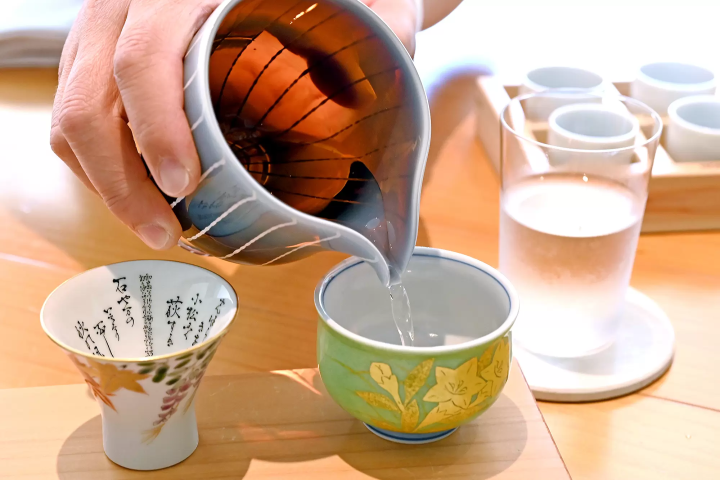In Spooky Japan - Scare Yourself And See Ghosts Around The Country!

You may or may not believe in ghosts, but that doesn't mean that they don't believe in you! Ghosts, yokai, oni, and all manner of Japanese supernatural beings lurk behind every corner, every abandoned lot, every strangely shaped tree across Japan.
During the Obon season, while families are preparing for a short summer vacation within which they will likely visit their family graves, and spend time with relatives both physical and ethereal, others will be excitedly looking forward to all the ghost stories and tales of yokai bound to appear on TV at this time.
On the other hand, there is an old custom of telling ghost stories in Japan in the summer. If a story "gives you the chills", then you get to forget about how hot is outside, so this why summer of the season to enjoy stories about ghostly apparitions and otherworldly encounters.
What Is a Yokai?
While traveling in Japan, you may come across any number of temples or shrines, each with their own fascinating and sometimes terrifying statues of gods, and plenty of different folktales and festivals have oni (ogres), but have you ever seen a yokai before?
Yokai are supernatural monsters or spirits in Japanese folklore that can range from the delightfully mischievous to the downright dangerous depending on where, when and how you encounter them. One of the main traits that yokai seem to share however, are an ability to shapeshift, which makes it them all the more dangerous to meet on a dark street at night.
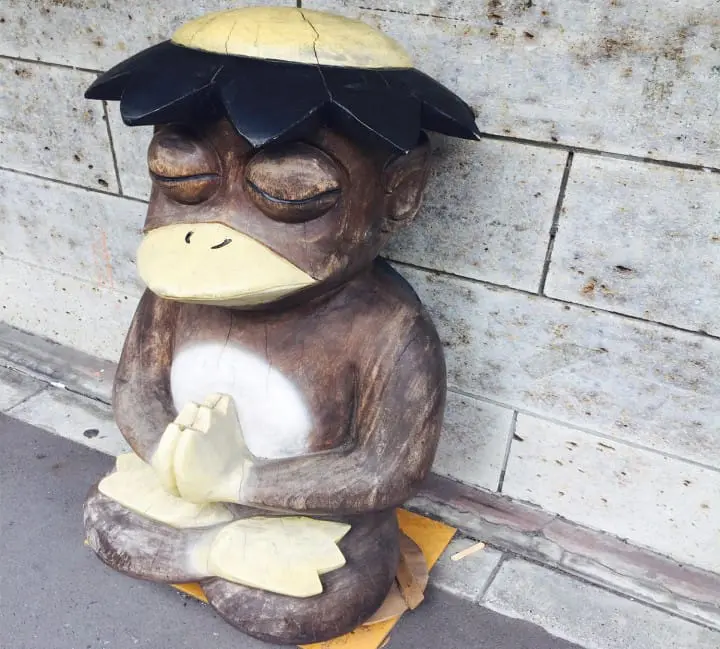
Two common types of yokai you'll find throughout Japan are kappa, the turtle-like creature which you can learn all about in Asakusa's Kappabashi area, and tengu, long-nosed goblins that reside in the mountains and in sacred areas, such as Mt. Takao in Tokyo, Daiyuzan Saijoji Temple in Kanagawa, Oya-ji Temple in Tochigi, Oiwa Shrine in Ibaraki, and many more.
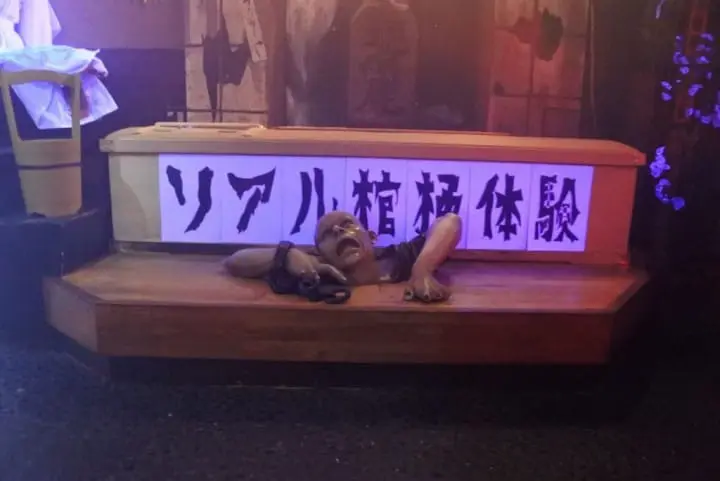
From: Must See For Horror Fans! Yūrei, The Pub Closest To Hell
If you'd like to have a drink and visit with some yokai and other spooky compatriots, then head to Kichijoji, where the haunted pub, Yurei awaits you with an open coffin. Really.
Hellish, Haunted Places in Japan
After reading about creatures like yokai, you may find yourself wanting to head out and discover the otherworldly side of Japan for yourself. Then you have found the right guide! Consider me the Virgil to your Dante.
Speaking of the Inferno, would you like to visit Hell?
Then a trip to Beppu, in Oita prefecture is in order! Just take part in the Beppu Hell Tour, where you can visit numerous different hot springs during the course of the day.
Now, you might be asking yourself, "Hell tour? What has that got to do with a hot spring?" but these are no ordinary hot springs.
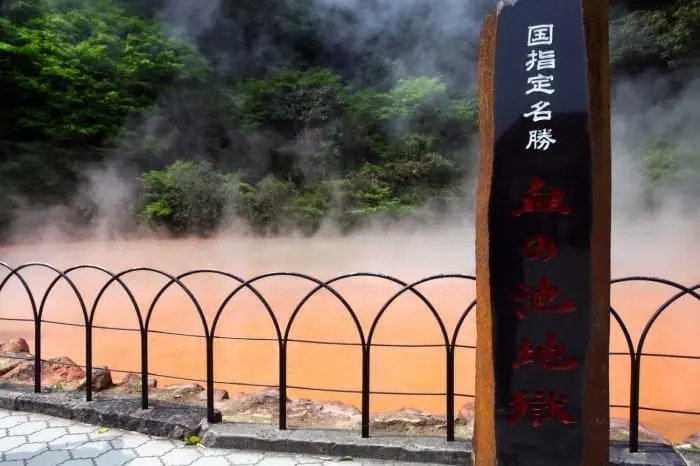
From: Enjoy The Otherworldly Sights Of Beppu Onsen's "Hell Tour"
For example, here you can see the Hell Pond of Blood, one of the oldest hot springs in this tour. The hot springs in the Beppu Hell Tour are not safe to enter as they contain dangerous levels of different natural chemicals (like sulfuric acid solutions!), and can reach temperatures over 150 degrees Celsius. Now, do you see why this is called a Hell tour?
Or maybe you prefer an encounter with a ghostly army, or the sight of a waterfall that was once stained red with blood?
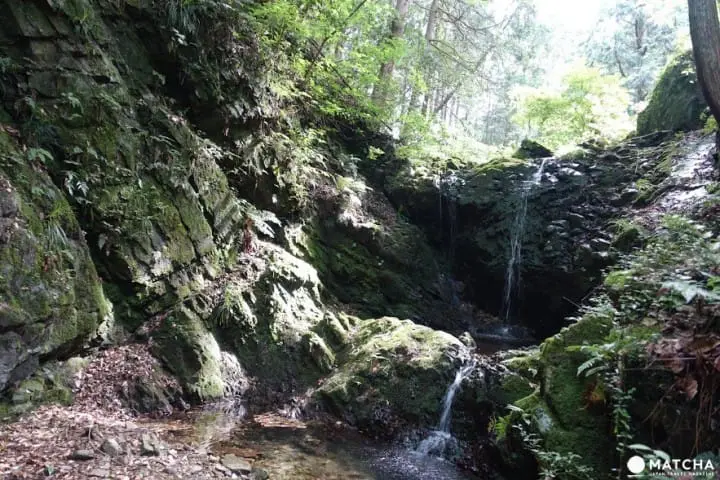
From: Hachioji Castle Ruins: The Tragedy Of Kanto's Hojo Clan
During the mid-Sengoku era, for numerous reasons too detailed to get into in this article, one of the unifiers of Japan, Toyotomi Hideyoshi, systematically attacked Hachioji Castle and other castles held by the Hojo family, who had controlled what is now the greater Tokyo/Kanto area, causing them to fall.
The women and children who had been living in the castle are said to have thrown themselves into this very waterfall, ending their own lives rather than becoming captives or killed by the invading army. According to legend, the waters ran red for three days after the siege, and ever since this tragedy took place, the Hachioji Castle ruins have been considered to be one of the most haunted places in the Kanto area.
In order to pray for the peace of the wounded souls of those who died in this area, a great number of visitors bring flowers as offerings to this spot.
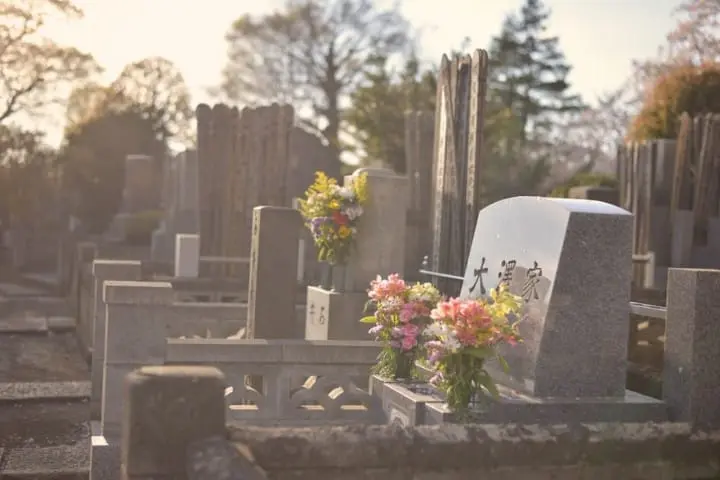
From: Cemetery Landscape: Feel Nostalgia And Tranquility At Yanaka Cemetery, Nippori
Perhaps you'd like to go somewhere a bit less intimidating, instead. Visiting a Japanese cemetery can be a serene and inspiring stroll; some of the most major ones are located near other sightseeing hot spots in Tokyo, but if you would like to take a walk through a spacious cemetery and immerse yourself in Japanese history, then I recommend checking out Yanaka Cemetery in Nippori, which you can read more about in Cemetery Landscape: Feel Nostalgia And Tranquility At Yanaka Cemetery, Nippori.
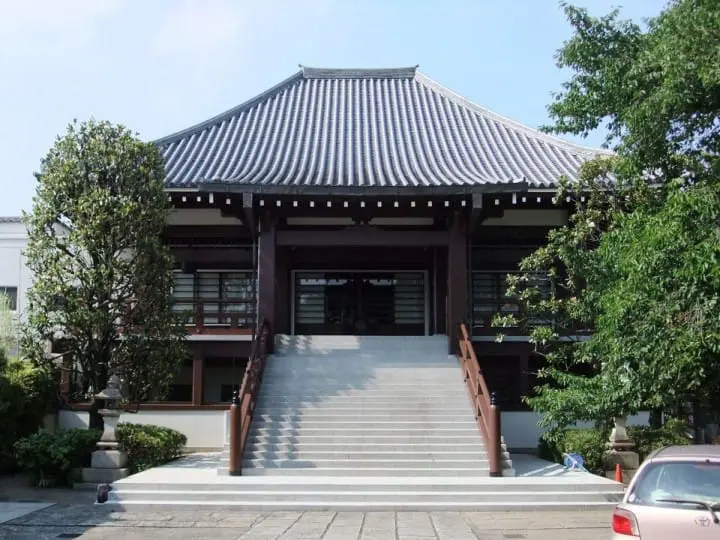
From: The Ghostly Art Of Zenshoan Temple In Yanaka: August Limited Event
Or, if you'd rather leave the ghosts as something to appreciate aesthetically only, then please visit the Ota Memorial Museum of Art in Harajuku, which every summer hosts an exhibition of works of supernatural ukiyo-e. Their theme for 2017 is "Specters".
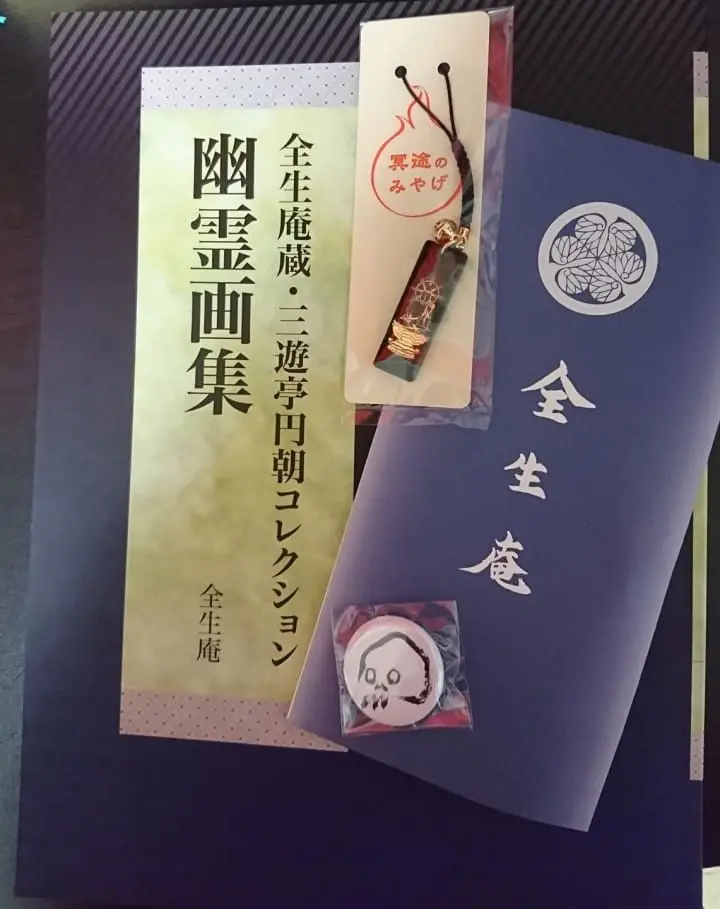
Or, pay a visit to Zenshoan Temple in Yanaka near Nippori, which only displays their vast collection of ghostly scrolls and paintings in the month of August. There you can see both modern and historical paintings by Japanese masters up close, and even pick up their photo book and a souvenir pin as well.
Personally, I enjoy visiting haunted spots during all my vacations across Japan, such as the abandoned hotel in the photo at the top of this article. Where is that? Well, that's a secret I'm not willing to share.
A Reprieve from Terror - Ghost Daifuku
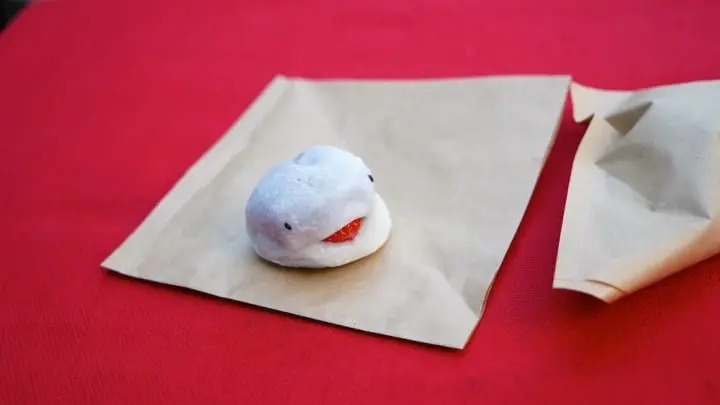
From: Meet A Cute And Sweet Spooky Friend: Ghost Daifuku
You might be feeling all ghosted out, but here's one last little haunt to brighten your day. The ghost daifuku from Edo Usagi, a confectionery shop in Nippori, is sure to make you smile. These soft mochi rice cakes are filled with a smooth, sweet red bean paste and a plump, red strawberry. They're almost too cute to eat!
No matter how you choose to celebrate it, summer is definitely the season for ghosts in Japan. Why not head out and see what sorts of spooky tales you can find?
Writer, translator, designer, weirdo.

































![[Shinjuku Nishiguchi HALC] About the d Point Campaign](https://resources.matcha-jp.com/resize/720x2000/2026/02/14-258714.webp)
